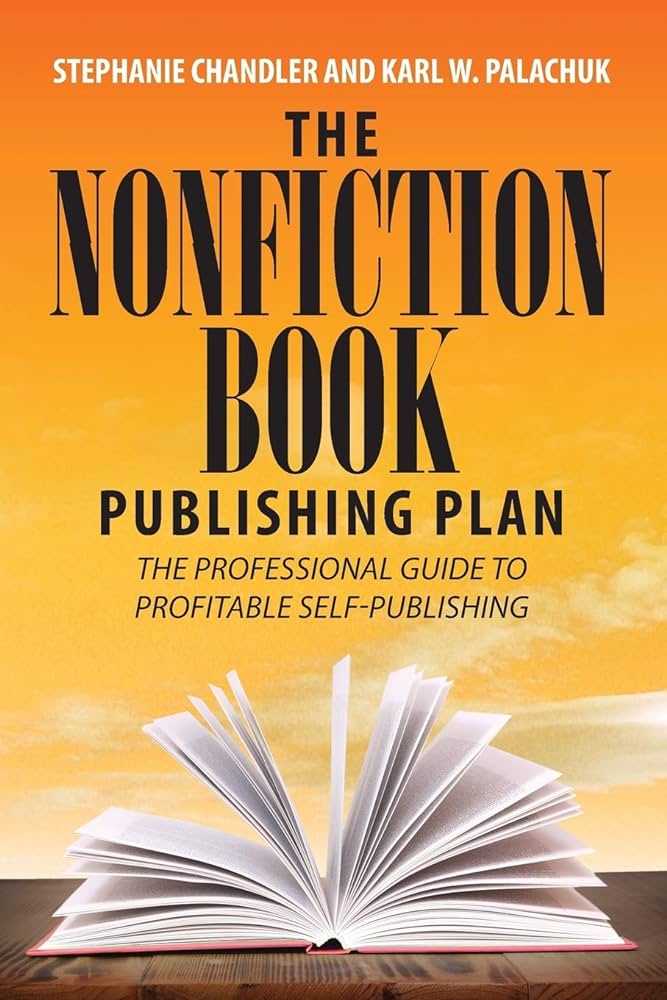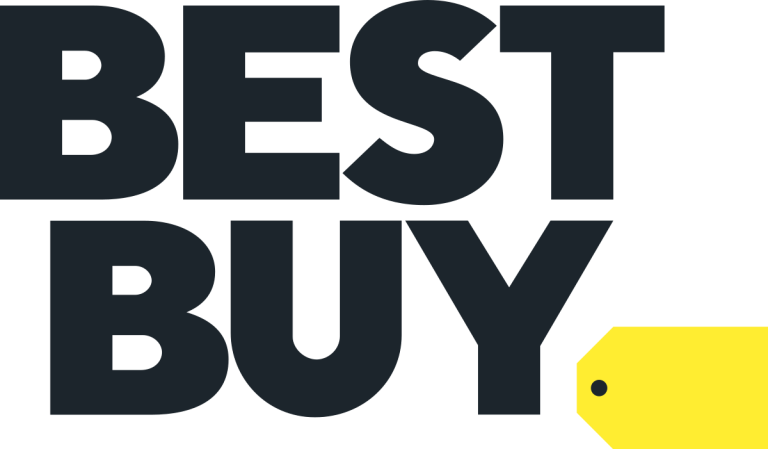9 Best Non Fiction Books to Expand Your Mind and Inspire Personal Growth
Looking to dive into some compelling non-fiction? Whether you’re eager to learn something new or just want to be inspired, non-fiction books offer a treasure trove of knowledge and insight. From gripping memoirs to thought-provoking essays, these reads can change the way you see the world.
Discover New Perspectives: “Sapiens: A Brief History of Humankind” by Yuval Noah Harari
“Sapiens” by Yuval Noah Harari is an illuminating non-fiction book that explores the history of humanity from our earliest days to the present. This profound work delves deep into the major factors that have shaped human societies.
Key Themes Explored in “Sapiens”
Evolution: Harari explains the Cognitive Revolution, providing insights into how Homo sapiens evolved to dominate other species.
Agriculture: The Agricultural Revolution’s impact on societal structures and human interaction is discussed in detail.
Science and Industry: The book examines the revolutions in science and industry that have transformed human societies.
Human Experience: The exploration of the meaning of happiness and the pursuit of human endeavors is particularly thought-provoking.
Why “Sapiens” Is a Must-Read
Comprehensive Overview: Offers a broad yet detailed look at human history, making it accessible to both casual readers and scholars.
Thought-Provoking Insights: Challenges preconceived notions about human development and societal norms, creating opportunities for reflection.
Engaging Style: Harari’s engaging writing makes complex topics digestible and interesting, keeping you hooked from start to finish.
Unveil the World of Economics: “Freakonomics” by Steven D. Levitt and Stephen J. Dubner
“Freakonomics” takes you on a fascinating journey through unconventional economic theories, exploring everyday life with a fresh perspective.
Intriguing Questions Answered by “Freakonomics”
“Freakonomics” answers unique, thought-provoking questions using economic principles. How do schoolteachers and sumo wrestlers cheat? Why do drug dealers live with their moms? Could a baby’s name affect their success in life? Levitt and Dubner dive into these puzzles with engaging storytelling and rigorous data analysis.
How “Freakonomics” Changes Your View on Economics
“Freakonomics” shifts your view on economics by showing how it applies to everyday decisions and behaviors. It breaks down complex data into relatable insights, revealing hidden incentives and unexpected connections. Through its compelling narratives, you’re inspired to see economics beyond traditional market transactions, recognizing its influence in surprising aspects of life.
Dive Into Self-Improvement: “Atomic Habits” by James Clear
“Atomic Habits” by James Clear dives deep into the mechanics of habit formation and offers actionable strategies for personal growth.
Core Concepts of “Atomic Habits”
Clear breaks down habits into four stages: cue, craving, response, and reward. Understanding this process helps you identify why habits form and persist. He introduces the concept of “atomic habits,” which are small, incremental changes that compound over time to yield significant results. Clear emphasizes the importance of identity-based habits—changing who you believe you are, rather than just what you do—to make lasting change. He also discusses the “Two-Minute Rule” for starting new habits, making them so easy you can’t ignore them.
Practical Applications from “Atomic Habits”
Clear offers practical tools like habit stacking, where you pair a new habit with an existing one to make it easier to adopt. He also suggests designing your environment to support better habits, such as placing healthy snacks within reach to encourage good eating habits. The book provides strategies for breaking bad habits, like identifying and removing the cues that trigger them. You’ll learn about tracking your progress to stay motivated and using accountability partners to keep you on track. These actionable insights help turn the theory of habit formation into real-life practice.
Explore Feminism: “We Should All Be Feminists” by Chimamanda Ngozi Adichie
Chimamanda Ngozi Adichie’s “We Should All Be Feminists” is a must-read that powerfully redefines the concept of feminism for the 21st century.
Powerful Messages from “We Should All Be Feminists”
Understand Gender Equality: Adichie emphasizes that feminism is not just a women’s issue but a human issue. She argues that both men and women should strive for gender equality.
Challenge Stereotypes: The book tackles gender stereotypes head-on. Adichie highlights personal anecdotes that illustrate how stereotypes limit both men and women.
Encourage Empowerment: The author passionately advocates for the empowerment of all individuals. She believes that empowering women empowers society as a whole.
Promote Inclusivity: The book calls for a more inclusive approach to feminism, one that recognizes the diverse experiences of women across different cultures and backgrounds.
The Impact of Adichie’s Work on Society
Change in Conversations: Adichie’s work has sparked global conversations about what it means to be a feminist. It has made feminism a more accessible and widely discussed topic.
Influence on Education: “We Should All Be Feminists” has been adopted in school curricula around the world. It educates young minds about gender equality and the importance of feminist ideology.
Cultural Shifts: The book has influenced popular culture, contributing to a shift in how feminism is depicted in media and entertainment. This has led to more nuanced portrayals of gender issues.
Policy Making: Adichie’s compelling insights have reached policymakers, inspiring legislative changes aimed at promoting gender equality in various sectors, including education, employment, and healthcare.
Personal Transformation: Many readers have reported experiencing personal growth and a more profound understanding of gender dynamics after reading the book. It has led to more informed and proactive stances on gender equality.
Adichie’s “We Should All Be Feminists” is not just a book; it’s a catalyst for change, inspiring individuals and societies to strive for a more equitable world.
Understand the Food Industry: “The Omnivore’s Dilemma” by Michael Pollan
Michael Pollan’s “The Omnivore’s Dilemma” offers an eye-opening look into the complexities of our food system. It challenges you to question where your food comes from and what you should eat.
What “The Omnivore’s Dilemma” Teaches Us About Food
Pollan explores how industrial farming, organic agriculture, and foraging each impact what ends up on your plate. You’ll learn about the hidden costs of industrial food production, including its effects on the environment and human health. By tracing foods from farm to table, Pollan reveals how disconnected we’ve become from the origins of what we eat.
Pollan’s Insights into Our Food Choices
Pollan provides practical guidance on making better food choices. He emphasizes eating whole foods, shopping locally, and understanding food labels. You’ll discover the benefits of supporting sustainable agriculture and how these choices impact both your health and the environment. Through Pollan’s insights, you become more informed and empowered to make thoughtful decisions about your diet.
Learn About Human Behavior: “Thinking, Fast and Slow” by Daniel Kahneman
Unravel the complexities of human behavior with Daniel Kahneman’s “Thinking, Fast and Slow”. This influential book delves into the dual systems that drive how we think and make choices.
Groundbreaking Ideas in “Thinking, Fast and Slow”
Discover the dual-system theory. Kahneman introduces System 1, which is fast, intuitive, and emotional, and System 2, which is slow, deliberate, and logical. System 1 helps us make quick decisions, while System 2 engages when we need deeper analysis.
Understand cognitive biases. Learn about heuristics like the Availability Heuristic, where we judge the likelihood of events based on how easily examples come to mind. Discover Anchoring, where initial information influences subsequent judgments.
Explore the concept of loss aversion. Kahneman explains why losses feel more painful than gains feel pleasurable and how this affects risk-taking behavior. This idea is central to prospect theory, a significant contribution to behavioral economics.
How Kahneman’s Theories Can Be Applied Daily
Improve decision-making skills. By recognizing when you’re relying on System 1, you can pause and engage System 2 for more complex decisions. This practice helps avoid snap judgments that might be flawed.
Mitigate biases in everyday choices. Awareness of biases like the Anchoring Effect can help you avoid being swayed by irrelevant initial information. Practicing this reduces errors in judgment personally and professionally.
Enhance negotiation tactics. Understanding loss aversion and other biases can make you more effective in negotiations. You can frame proposals in terms of potential losses to leverage this natural human tendency for better outcomes.
Kahneman’s insights provide tools to better understand yourself and others, leading to more mindful, informed decisions.
Investigate Health and Science: “The Immortal Life of Henrietta Lacks” by Rebecca Skloot
The Story of Henrietta Lacks
Dive into the fascinating life of Henrietta Lacks in this gripping book. Henrietta, an African American woman, unknowingly donated her cells in 1951. These cells, known as HeLa cells, became crucial for medical research. HeLa cells contributed to numerous scientific breakthroughs, including the polio vaccine and cancer treatments. Rebecca Skloot meticulously unravels Henrietta’s incredible legacy, intertwining her family’s journey and the scientific advancements her cells enabled.
Ethical Questions Raised by the Book
Reflect on the profound ethical dilemmas posed by Skloot’s narrative. The book raises critical concerns about consent and the use of human tissues in research. Henrietta’s family was unaware of her cells’ extensive use, sparking debates about patients’ rights and informed consent. This thought-provoking aspect of the book encourages you to consider the balance between scientific progress and ethical responsibility. Explore these complex issues as Skloot delves into the intersections of ethics, race, and medical research.
Gain Historical Insights: “A People’s History of the United States” by Howard Zinn
Howard Zinn’s “A People’s History of the United States” offers an alternative narrative to traditional American history textbooks. Zinn provides a fresh perspective, giving voice to the marginalized and underrepresented.
Alternative Viewpoint on US History
Zinn challenges mainstream historical narratives by focusing on the experiences of ordinary people. He emphasizes workers, women, and minorities who played crucial roles in shaping the nation. This approach unveils stories often overlooked or simplified, encouraging you to question widely accepted historical accounts. By doing so, Zinn reframes the dialogue around pivotal events and movements, offering a more inclusive and critical understanding of US history.
Key Historical Events from “A People’s History”
Zinn covers essential events from the perspective of those often left out of history books. He discusses the impact of European colonization on Native Americans, highlighting the violence and exploitation involved. The narrative of slavery and its profound repercussions on African Americans receives a detailed examination, showcasing the resistance and resilience against oppression. Labor movements, with their significant strikes and demands for workers’ rights, reveal the struggles of the working class. Civil rights movements, emphasizing leaders and grassroots activism, illustrate the ongoing fight for equality and justice. Each chapter provides an in-depth look at these events, shedding light on the collective efforts that shaped the United States.
Enhance Your Creativity: “Big Magic: Creative Living Beyond Fear” by Elizabeth Gilbert
Elizabeth Gilbert’s “Big Magic” serves as a powerful guide for anyone looking to unleash their creative potential. In this book, Gilbert breaks down the barriers that often hold us back and offers practical advice on embracing curiosity and creativity.
Encouragements from “Big Magic”
Find Courage in Creativity. Gilbert emphasizes that you don’t need to be fearless to be creative. She invites you to coexist with your fears while still pursuing your art.
Embrace the Unknown. She encourages you to welcome mystery and uncertainty, suggesting that not knowing the outcome is an essential part of the creative process.
Trust in Your Ideas. Gilbert believes that the world is filled with ideas waiting for people to bring them to life. She reassures you that your ideas are valid and worth pursuing, no matter how unconventional they seem.
Lessons on Overcoming Creative Blocks
Acknowledge Your Fears. Gilbert details how recognizing and naming your fears can take away their power, making it easier for you to move past them.
Create Despite Challenges. She stresses the importance of continuing to create even when you’re feeling uninspired or facing obstacles. Consistency often leads to breakthroughs.
Manage Perfectionism. “Big Magic” tackles the issue of perfectionism directly, advising you to let go of the need for everything to be flawless. Gilbert encourages you to aim for completion over perfection, reminding you that finished work is always better than perfect, unfinished work.
Conclusion: Insights Gained and Next Steps
Exploring these nine non-fiction books offers a wealth of knowledge and diverse perspectives. From understanding human history and economic principles to mastering habits and embracing creativity, each book provides valuable insights that can transform your worldview.
As you dive into these reads, you’ll find yourself questioning established norms, rethinking personal habits, and perhaps even igniting a newfound passion for learning. These books are more than just pages of text; they’re gateways to deeper understanding and personal growth.
So, pick up one of these recommended reads and start your journey towards a more informed and enriched life. Happy reading!






